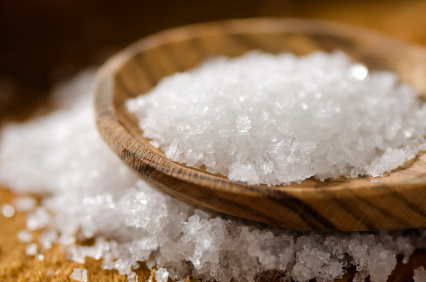Salt Implicated in Autoimmune Diseases
Autoimmune diseases, in which the body’s immune system begins to attack healthy tissue, have become much more common in recent decades. Some autoimmune problems are related to overproduction of TH17 cells, immune cells that produce a particular inflammatory protein (interleukin-17), but it is not clear why some people’s bodies start producing too many TH17 cells. Three studies published in the journal Nature in 2013 suggest that salt may play a role. They were recently summarized in Scientific American.
In the first study, researchers developed a model of how TH17 cells are controlled. In the second, they observed how immune cells are produced over a period of several days. The researchers noticed that a protein called serum glucocorticoid kinase 1 (SGK1), which is known to regulate salt in cells, seemed to act as a signal for TH17 production. Mouse cells in high-salt environments had more SGK1 and produced more TH17. The third study confirmed the connection with salt using both mouse cells and human cells.
While mice with multiple sclerosis (an autoimmune disease) worsen on a high-salt diet, it is not clear that salt in the diet is related to TH17 production. It is also not clear that slowing TH17 production is the answer to autoimmune diseases since autoimmunity differs across patients and disorders. However, in any event, low-salt diets are recommended for general health concerns, such as blood pressure.


